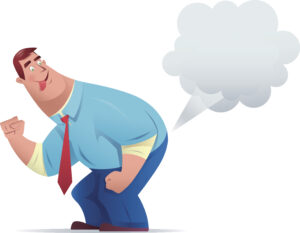 Lawyers are supposed to follow the law, as are judges. However, some judges just don’t believe that they need to also follow the law, so they don’t. A trial court judge in Michigan thought that the punishment did not fit the conviction, so he sentenced the female defendant to a longer term than prescribed by law. Of course, an appeal followed, and the appellate court reversed the sentencing, spanking the judge for not adhering to the law, and ordering him to resentence. He did so, and again, sentenced the defendant to a higher term than allowed by law. Once again, an appeal followed, and he was again reversed, again spanked, but this time, the court said “enough,” and gave the matter to another judge for resentencing, not desirous of having this judicial problem-child handle the matter yet again. Any whiffs of judicial misconduct or bias? Of course there are, but this judge is very popular and has won re-election consistently.
Lawyers are supposed to follow the law, as are judges. However, some judges just don’t believe that they need to also follow the law, so they don’t. A trial court judge in Michigan thought that the punishment did not fit the conviction, so he sentenced the female defendant to a longer term than prescribed by law. Of course, an appeal followed, and the appellate court reversed the sentencing, spanking the judge for not adhering to the law, and ordering him to resentence. He did so, and again, sentenced the defendant to a higher term than allowed by law. Once again, an appeal followed, and he was again reversed, again spanked, but this time, the court said “enough,” and gave the matter to another judge for resentencing, not desirous of having this judicial problem-child handle the matter yet again. Any whiffs of judicial misconduct or bias? Of course there are, but this judge is very popular and has won re-election consistently.
However, this incident was not his first rodeo. He has had a penchant for taking things personally, like telling a court officer to taser a defendant, taking off his robe, leaving the bench, charging the defendant, and then helping the court officer wrestle him to the ground. This is a 21st century version of the old saying “put up your dukes.” Disagreement with the law does not allow disregard … or does it? Do we have any examples in recent history about that?
And although my ATL editors may cringe, given that this attorney was its Lawyer of the Year in 2018, four years is a lifetime these days. Michael Avenatti, once the poster child for representing Stormy Daniels and railing against former President Donald Trump, has now been convicted not once, but twice. Already sentenced to prison for his conviction in an extortion case involving Nike, he was recently convicted for bilking his client. But wait, there’s more. He faces a retrial in an unrelated case here in California for theft of funds from clients other than Stormy Daniels, but first he has an appeal to be heard in March in the 9th Circuit, arguing that the prosecution failed to provide all the necessary documents from his prior law firm that would, he claims, provide a defense. The former president may well be enjoying the schadenfreude.

How LexisNexis CourtLink And Lexis Snapshot Deliver Business Wins
These tools demonstrate that information is power.
How about this one? Either dismiss your petition for a restraining order or have your nude photos made a part of the public record in moving to dismiss the petition. Good lawyering? Hardly, although the attorney thought it was. The Indiana Supreme Court disagreed and benchslapped that attorney, calling it intentional bullying and coercion and handed the attorney a 90-day suspension. Do you think that is sufficient punishment? Where is the line between aggressive but permissible settlement tactics and conduct that crosses over ethical boundaries? (See Avenatti/Nike above.)
I’ve often wondered how the term “thought leader” came to be. And how is a thought leader defined and who defines it? Is it one of those self-defined terms? The Cambridge Dictionary defines the term as “a subject matter expert whose opinions and ideas influence other people.”
But how do we know that? Do peeps go around spouting ideas to influence others? How many thought leaders do you know? Is a thought leader in the mind of the beholder of the thought?
Mark Herrmann captured this issue perfectly in an ATL piece he wrote four years ago. He said that just because you think you are a thought leader doesn’t mean you are one. Just because you tweet doesn’t make you a thought leader. (And given the lunacy of some tweets, he’s even more on point today.) You must be innovative, and you must be able to have peeps follow you. Given the still hide-bound nature of our profession and our heel-dragging on changes, it’s the disrupters in the profession who are thought leaders, those who are thinking of different, more efficient ways to provide legal services — especially to those who need those services and can’t afford them.

How You Can Take Control Of Your Firm’s Financial Future
Roadblocks to data-driven business management are falling, and a better bottom line awaits.
Do you think there will ever come a time when lawyers and judges won’t be tagged with the “first woman lawyer to do X,” the “first minority lawyer to do Y,” and so on? I understand that you can’t have seconds, thirds, fourths without “firsts,” but it’s frustrating that we can’t seem to get beyond numbers and disparaging remarks. And yes, I am a “lesser white woman,” who is stupefied by the outrageous comment on Twitter (but of course) by an incoming Georgetown Law administrator on the to-be-announced Supreme Court nominee. That original tweet has since been removed and there’s an apology on Twitter (but of course), but the damage was done. Words mean what they say they mean, and just because there’s a subsequent apology doesn’t change what was originally said. Contrary to the old childhood phrase about “stick and stones,” words hurt. Just because you are supposed to be smarter than the average bear doesn’t mean that you are. He’s definitely not a thought leader.
In the “business must be slow” department, a law firm partner has recorded sounds of his farts. I am all for silly stupid humor (think “Animal House,” “Mars Attacks!,” “Airplane”) but I am not making this up. Talk about scraping the barrel’s bottom.
 Jill Switzer has been an active member of the State Bar of California for over 40 years. She remembers practicing law in a kinder, gentler time. She’s had a diverse legal career, including stints as a deputy district attorney, a solo practice, and several senior in-house gigs. She now mediates full-time, which gives her the opportunity to see dinosaurs, millennials, and those in-between interact — it’s not always civil. You can reach her by email at [email protected].
Jill Switzer has been an active member of the State Bar of California for over 40 years. She remembers practicing law in a kinder, gentler time. She’s had a diverse legal career, including stints as a deputy district attorney, a solo practice, and several senior in-house gigs. She now mediates full-time, which gives her the opportunity to see dinosaurs, millennials, and those in-between interact — it’s not always civil. You can reach her by email at [email protected].